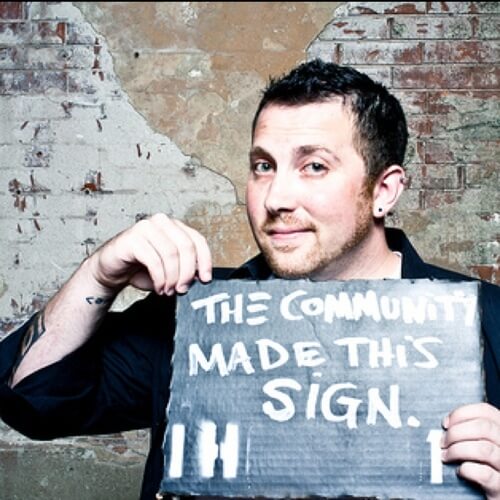It’s springtime, which means that we’ve been getting an influx of internship request emails at Indy Hall as people come out of their winter hibernation and gear up for the summer. Timing is ripe, too, since we’re spinning up a rebooted version of our internship program very soon.
I’ve started to notice patterns in the emails we get, and thought it might be helpful for the interested students out there to guide them down the right path towards getting an internship at a coworking space like Indy Hall.
Why would you want to be an intern at a coworking space?
Our coworking space is a pretty unusual place to be an intern. There’s a plethora of experiences to learn from, ranging from operations & management, communications & community building, and business & civic engagement.
But I’d argue that more importantly, there’s the community members themselves to learn from! Indy Hall in particular is inhabited by one of the most diverse communities of workers in this city. On a regular basis I am surprised to find out what a member does for a living and think to myself, “damn, I didn’t even know you could DO that as a job.”
And to that end, interning at Indy Hall is different from most internships. It’s more of an exploration. While we do have a checklist of operational things that need to be done, there’s time between tasks where you’re expected to find things that you want to do, and with our guidance and support, figure out how to do them in a way that benefits you AND the community.
A quick story
Parker Whitney came to Indy Hall from Houston, Texas in the spring of 2009. In his application, he said that he found our blog post looking for interns searching for “cool philadelphia internships”. We got a dozen applications or so, but one of the reasons that Parker’s stood out was buried in his answer to a key question: In your own words, what is Indy Hall?
“Regardless of my potential employment status with IndyHall, I know it is a place I must experience.” It’s useful to know that Parker had never been to a coworking space, and hadn’t heard of Indy Hall until 15 minutes before applying.
To make a long story short, Parker was offered the internship. Looking back at our requirements, he’d be the first to admit that “being an organized person” wasn’t his strength, but he made up for it in other ways. Not the least of which was his drive to try things.
In 6 months I watched him take a crack at no less than 6 different professions held by other Indy Hall members (and a few others that he had scouted out on his own). He tried and stumbled at some skills, while baby-stepping forward with others. He learned his strengths and weaknesses in a place that supported and cared for him, but pushed him to try new and different as well.
Parker settled in as a freelance illustrator, building a portfolio of contract design work. His artistic aptitude was honed with some guidance and mentorship from members. But he’d also made a friend in Jake O’Brien, an freelance iOS developer who’d also launched a few of his own game titles in the app store.
Parker and Jake teamed up over beers to talk about video games, a passion they both shared. But an opportunity blossomed as well – an opportunity to collaborate on work became a natural extension of their friendship, shared interests, and complimentary skills of developer and designer.
This is the part where I “easy-bake-oven” a lot of their hard work, but less than 4 years later Parker and Jake have a company called Flyclops, a 3rd partner that they met here at Indy Hall, and a very successful iPhone game called Domino! in the app store that’s led them to leave freelancing behind entirely and even bring on their first employee.
Parker didn’t come to Indy Hall for the internship.
He wasn’t the ideal candidate because he was the most talented or impressive.
He never said “I want to build video games” or even “I want to start a company”.
He discovered Indy Hall while looking for an internship, but applied for a different reason: he wanted to be a member but didn’t know how to get there.
Like Parker, our ideal intern is someone who wants to be a member of IndyHall, even if they don’t know how to get there!
Is Indy Hall the kind of place you’d want to intern?
Start by asking yourself this question: “What do I want to do next with my career?”
If your answer is “I’m not entirely sure, but Indy Hall is the place where I want to figure out what I really want to do”, let me know.
For bonus points, tell me: In your own words, what is Indy Hall?
 I am always thinking about the intersection of people, relationships, trust and business. I founded
I am always thinking about the intersection of people, relationships, trust and business. I founded